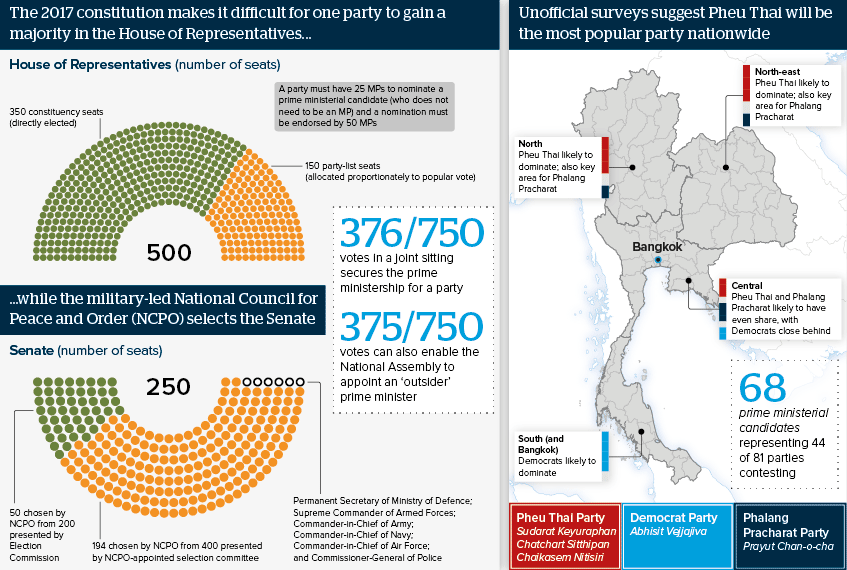Thai electoral system will give small parties leverage
The March 24 general election involves mixed-member proportional representation
Source: Oxford Analytica
Outlook
The long-awaited general election will see voting for a re-established House of Representatives based on mixed-member proportional representation. A party will require the support of just over half the House and Senate together to secure the prime ministership for its candidate.
With the NCPO hand-picking the Senate, the pro-junta Phalang Pracharat has the edge ahead of the poll despite the possibility that it might only be the third-largest party in the House.
The electoral system means smaller parties will likely exert significant leverage post-poll, with a leading party likely to be reliant on a coalition to claim power.
Impacts
- Phalang Pracharat will likely need only 126 House seats to secure the prime ministership for incumbent Prayut Chan-o-cha.
- The recent dissolution of the Thai Raksa Chart Party, a Pheu Thai offshoot, could hurt Pheu Thai’s chances of building a coalition.
- The Democrats are more likely to support Phalang Pracharat than Pheu Thai, though they will aim to distance themselves from both.
See also
- Thailand’s Prayut faces uphill battle for re-election - Jan 13, 2023
- Economy will preoccupy new Thai government - Aug 1, 2019
- Thailand will face regular legislative gridlock - May 10, 2019
- Pre-poll loss may hurt Thailand’s key anti-junta party - Mar 19, 2019
- Thailand’s pro-junta party holds edge ahead of polls - Dec 31, 2018
- More graphic analysis
